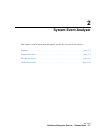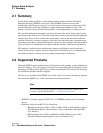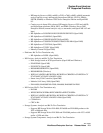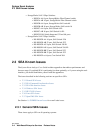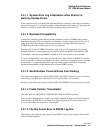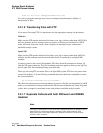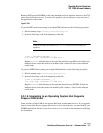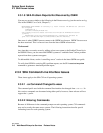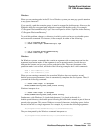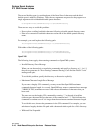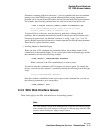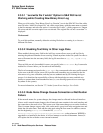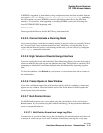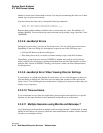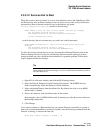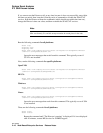System Event Analyzer
2.3 SEA Known Issues
Rev. 9/8/06
Web-Based Enterprise Services Release Notes 2–9
Windows
When you are entering paths in the CLI on a Windows system you must pay special attention
to any space characters.
If you specify a path that contains spaces, it must be wrapped in double-quotes. However, the
Windows shells do not expand path wildcards wrapped with double-quotes. For example,
“C:\Program Files\someDirectory\*.zpd” does not expand to all the *.zpd files in the directory
“C:\Program Files\someDirectory.”
To avoid this problem, change to a directory in which you do not have to use double-quotes
and execute the command. For instance, in the example, do either of the following:
C:\>cd C:\Program Files
C:\>wsea trans input someDirectory\*.zpd
or
C:\>cd C:\Program Files\someDirectory
C:\>wsea trans input *.zpd
Windows
On Windows systems, commands that contain an argument with a comma must enclose the
argument in quotation marks. If the argument is not in quotation marks, Java® does not
interpret the comma, and you may receive undesired results. The exact placement of the
quotation marks is not critical, and both of the following examples show valid commands:
wsea n ana index=”s:1, e:1”
wsea n ana “index=s:1, e:1”
When you are entering commands, be aware that Windows does not require a second
double-quote around parameters, since it automatically completes the set of quotes. Thus, if
you enter the following command:
C:\>wsea trans input “C:\Program
Files\someDirectory\disk_read_errors.errlog
Windows interprets it as:
C:\>wsea trans input “C:\Program
Files\someDirectory\disk_read_errors.errlog”
Furthermore, with Windows, if a backslash character (\) is placed at the end of a
double-quoted directory, the double-quote following the backslash is treated as part of the text
passed to the program. This causes Windows to treat all characters, including spaces, before
the end of the line as a single argument. For example, if you enter the following arguments:
“C:\Program Files\someDirectory\” C:\anotherDirectory
They are interpreted by the Windows command interpreter as:
“C:\Program Files\someDirectory” C:\anotherDirectory”



